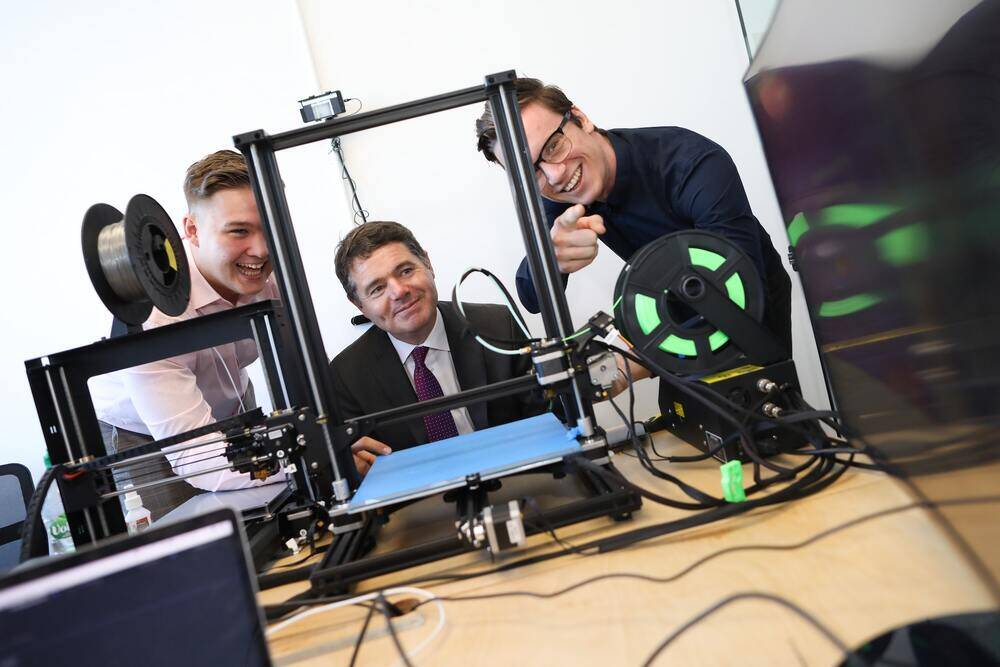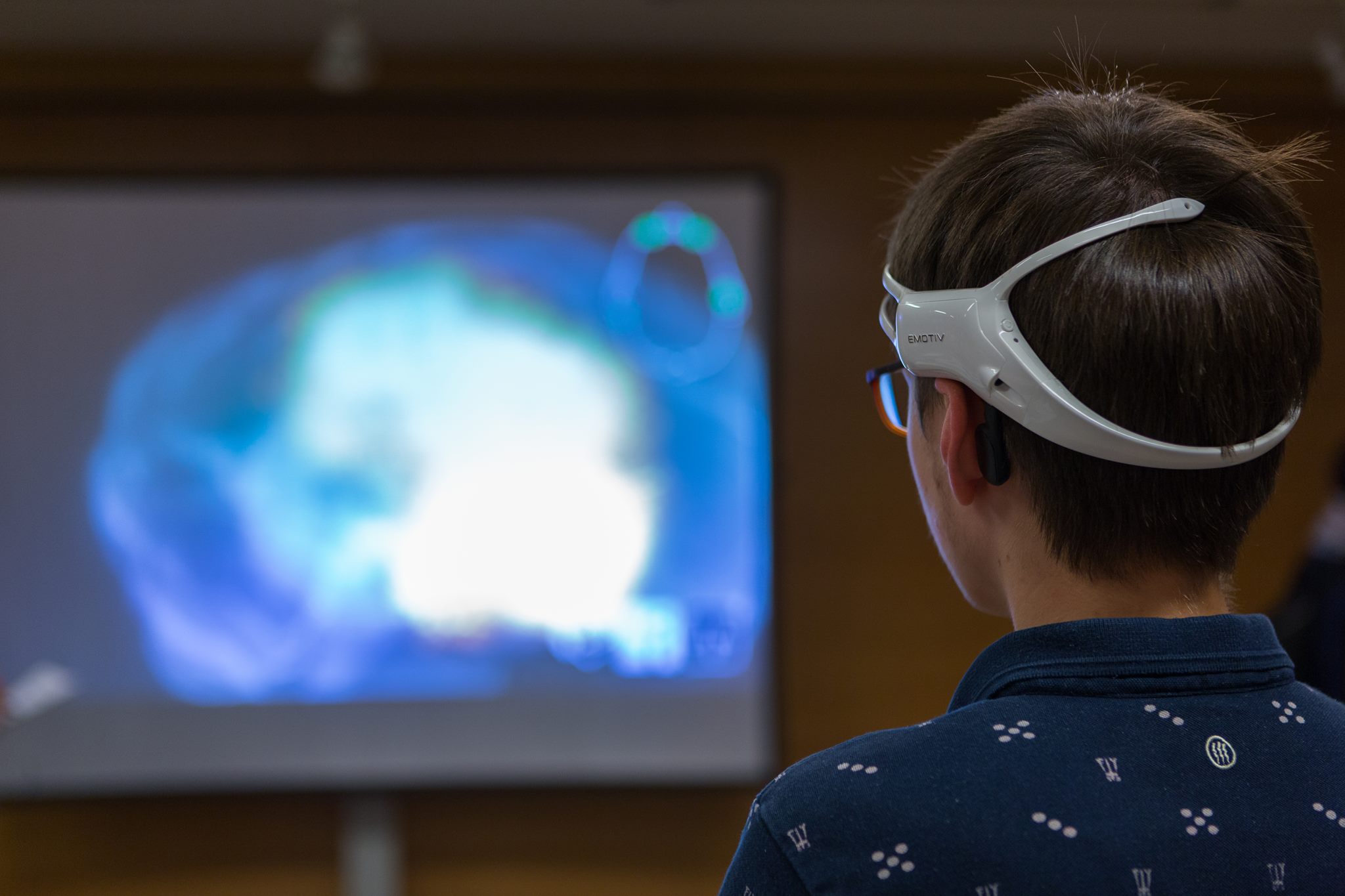- Home
- Coding & Dev AI
- Robotify: teaching kids how to code bot by bot!


Learning how to code may sound complicated, especially to an eight-year-old, but what if there was an easy, fun and exciting way to teach kids the important skills they will need to succeed in this ever-evolving technological world? By 2027, STEM jobs are projected to grow by 13%, yet 2.4 million jobs within this sector went unfilled in 2018 - one of the main reasons being that 71% of all new jobs in STEM are in computing, but only 8% of STEM graduates are in Computer Science. To help combat this issue, young entrepreneurs Adam Dalton and Evan Darcy have created an innovative solution with Robotify - a service that teaches children programming skills from an early age, sparking an interest in STEM using robotics and online competitive gaming. We interviewed the co-founders, who are growing their startup at Talent Garden Dublin, to get an insight into their journey so far and the story behind their innovative company.
1. Can you tell us a bit about yourselves and your roles at Robotify?
Adam: I’m the co-founder and CEO at Robotify - I drive the vision, strategy and growth of the company which aims to provide interesting and unique ways to teach children how to code. I have over 5 years’ experience in digital marketing, coding and growth strategy and first launched my career as an entrepreneur teaching kids how to code in a classroom setting. My main mission now is to spearhead Robotify’s growth into new markets. Evan: I’m the co-founder and CTO at Robotify, which means I’m at the forefront of the company’s vision and the driving force behind the learning innovations - constantly engineering the product to reach new heights and educate the masses. I’m a self-taught engineer and have overseen the successful launch of our first product Alpha, while also inventing new technologies such as the Robotify Board and much of the software/hardware behind another product of ours called Vivero.
2. What made you want to teach coding to children and how did the idea for Robotify come about?
Adam: I started teaching kids how to make websites when I was 15 years old as part of a mini-enterprise programme in St Paul’s College, Raheny. A year later, when I was in 5th year, Evan came to me looking to start a business, with the only problem being that we couldn’t think of an idea…
Evan: We started to discuss the coding classes that were so successful the previous year and agreed that the most difficult part was getting kids to actually pay attention, which led to the idea of using robots in the classroom. The hypothesis was that learning how to code on a screen, but seeing the result in real life, would create a spark in young minds and allow them to learn in a fun and engaging way. We tested the hypothesis and it worked - robots really did increase retention and attention!
Adam: After the Leaving Cert, we both secured places in DCU and within our first year there we launched our first ever boxed product called ‘Robotify Alpha’ and got our first office space in DCU Alpha. We sold about 150 units of Robotify Alpha over its lifespan, but we realised that it wasn’t going to be a massive success because the margin was too low and price point for customers didn’t offer value for money. We thought it was over!
3. How did you overcome that obstacle?
Evan: In the summer of 2017, we both had part-time jobs with every spare second going towards developing Robotify. One day, we came across an opportunity to go to a mentoring session in DCU called ‘Mentoring for Scale’ where we were able to sit down for 30 minutes with three extremely experienced business people and ask their expert advice. The only rule? We were not allowed to ask for investment!
Adam: The first person I sat down with was Andrew Murphy, who asked me “how do we sell more robots?” Andrew explained that if we create software that allows users to control robots remotely, we can offer users a much cheaper experience and create a highly scalable business at the same time. From there, we created a new business model called RaaS (Robots as a service) which meant we went from 1 robot = 1 user to 1 robot = theoretically infinite users!
Evan: A week later, Andrew offered us pre-seed money and the rest is history! Since then, Andrew has taken on a bigger role within the team, we finished our second year of college and are currently doing a work placement year going full time at Robotify. Now based in Talent Garden Dublin, we have successfully built a product that was first envisaged over 12 months ago when we met Andrew, Robotify EDU, and it's doing extremely well!
4. Can you briefly describe how Robotify works and when did you officially open?
Adam: Since inception, Robotify Labs has been an edtech business. Initially, we developed and sold robotics kits, but when we realised it wasn’t a scalable business, we worked tirelessly to find the optimal solution. We believe we achieved this with the beta Robotify EDU, which launched in July 2018.
Evan: We developed software that allows users to control hardware remotely, meaning that customers can access hardware for a fraction of the original price. Our educational platform gives users access to 40 hours worth of content, covering everything from movement and patterns to applied mathematics and is suitable for anyone from 3rd class onwards. The platform is tailor-made to cater for non-technical teachers, who can choose the course they want to take part in and book time for their class. The beauty of EDU (the edtech software) is that once the teachers know how to add users to their class on the platform, the rest is managed by the software.
Adam: We believe we have created a truly engaging learning process and have tested our hypothesis with over 1,000 students in the real world, witnessing the exact same emotional reaction as we had with robots being physically there. By using the power of our educational platform, users can now see in less than 100ms their robot move in real life thanks to low latency camera streaming.
Evan: We have a strong market presence in Ireland and work with some of the premier educational institutions with clients such as Dublin City University, Center for Talented Youth Ireland, European Space Agency (ESA), Dublin Science Gallery, Trinity College and Educate Together. We also currently operate a robot farm which has scope for roughly 100 robots on the network.
5. How is learning to code going to impact children's lives when thinking of the future?
Adam: By the year 2034, 47% of all jobs will be automated and replaced by robots. This means that we will need skills to understand how these robots work and, ultimately, that is the goal of Robotify - to give people the basic level of understanding as to how these robots actually work. We also work with University students to teach them about abstract advanced concepts in an intuitive way.
6. What do you hope to gain from joining Talent Garden and what attracted you to join?
Adam: What really attracted us to Talent Garden was the network of people it gave us access to - it’s wonderful to be part of something ‘sans frontières!’ I also think that as a small company with only two full-timers, it has given us an environment in which we can just have fun. We have made friends with our neighbouring companies and that fun atmosphere has made us look forward to coming into work even more every day!

Don't Waste Your Talent. Turn It Into a Career With a Course That Fits Your Needs!
Keep reading

Meet our Students: Rebecca Kiechl – UX Design Fulltime Bootcamp

Reading consumers’ minds through neuro-science

10 Collaboration Tools for Remote Working

